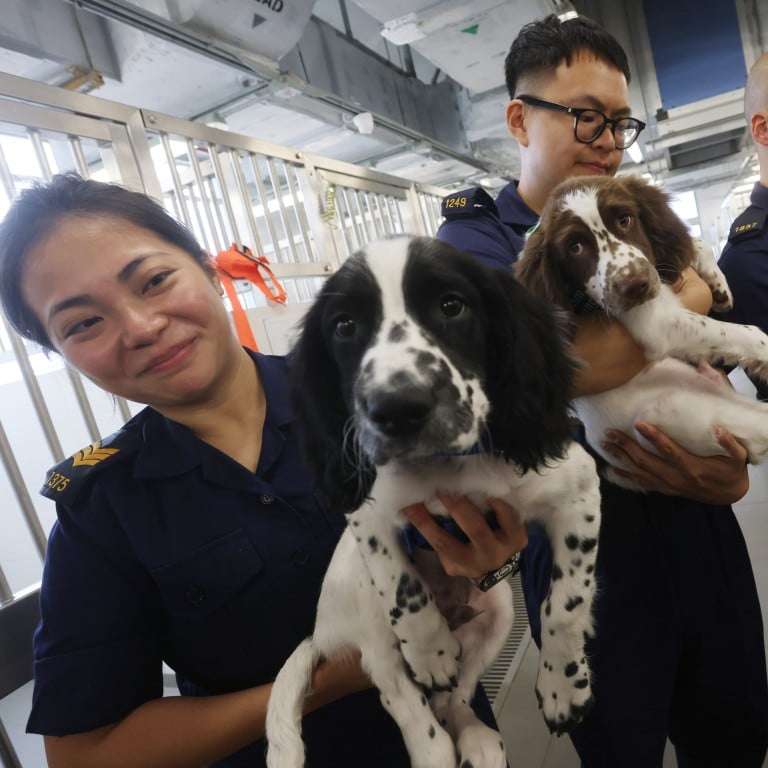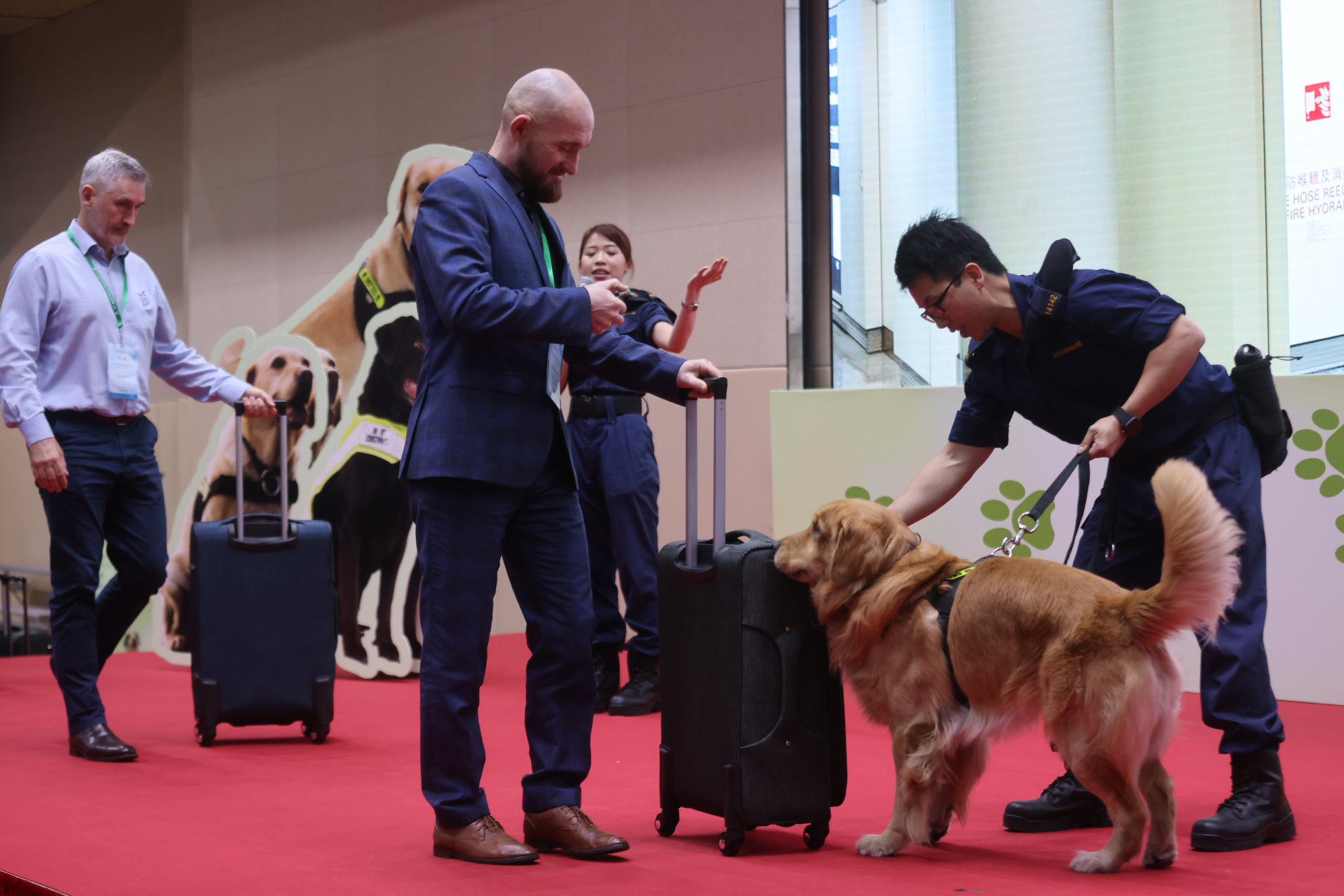
Not enough Hong Kong working dogs have their day
- As city customs marks international recognition of centre to train canines to sniff out likes of drugs and explosives, other services wait for animals
Dogs may soon be taking a bigger bite out of crime across the Asia-Pacific after Hong Kong customs earned an international accreditation to train canines for work sniffing out contraband around the region. It was a welcome acknowledgement of the city’s leadership in the sector and a reflection of the long-standing affection Hongkongers have for their animals.
The recognition was granted to Customs and Excise Department kennels at the city’s port of the Hong Kong-Zhuhai-Macau Bridge. The centre, recently expanded to include an 8,800 sq ft outdoor training ground, is one of only five World Customs Organisation Regional Dog Training Centres in the region.
Commissioner of Customs and Excise Louise Ho Pui-shan said the centre would arrange training for organisation members, develop an evaluation process, and help tailor workshops and seminars for animals in other jurisdictions.
Since its establishment in 2018, the facility has trained 27 pairs of dogs and handlers and bred 28 puppies. In November, eight springer spaniels were born to a customs tobacco detector named Effie, and sired by Twix, a Fire Services Department urban search and rescue dog sent to find victims of last year’s earthquake in Turkey.

Customs has used detector dogs since 1975 and in-house breeding began in 2020. Pups receive 10 weeks of training after they turn a year old, then build specialised skills such as sniffing out drugs, explosives, firearms, tobacco or cash.
Customs kennels even have a mock-up of a container ship to simulate contraband checks at ports.
Hong Kong is an extraordinarily pet-friendly city, where some 10 per cent of households own dogs or cats. However, more working animals are needed in law enforcement and other roles, such as guides for the visually impaired.
There are about 50 guide dogs in the city, according to Hong Kong Seeing Eye Dog Services – well short of the 1,900 the charity says are needed. But there is a shortage of foster families to care for the animals during training.
Hong Kong customs gets international accreditation for sniffer dog training
Authorities should consider appeals for an accreditation system to allow more of them to be taken in by families on private estates that currently ban pets.
Meanwhile, it is good that accreditation of the customs training programme is helping to give some working dogs their day.

